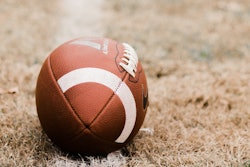The question of why some children recover quickly from traumatic brain injuries, such as concussions, while others suffer from side effects for much longer may finally have an answer.
Research from UCLA and USC suggests that damage to the coating around the brain’s nerve fibers, not the severity of a brain injury, maybe be responsible for the difference in recovery time.
The finding identifies potential biomarkers that physicians could use to identify patients who are at a higher risk and would require closer monitoring.
FROM AB: How to Manage Concussions in Athletics
Scientists hypothesized that damage to the myelin, the fatty coating around the brain’s nerve fibers, slowed down the brain’s ability to transmit information, which ultimately interfered with a patient’s capacity to learn.
To test this hypothesis, the researchers assigned a series of mental tasks to 32 participants, ages eight to 19. Each of these participants had suffered a moderate to severe brain injury within five months of taking part in the study. The tasks evaluated the children’s processing speed, short-term memory, verbal learning and cognitive flexibility.
The scientists at UCLA recorded the participants’ brains’ electrical activity to test how quickly their nerve fibers could transmit information. They then imaged the wiring of the children’s brains to assess its structural soundness.
The injured patients’ results were then compared to the results of a control group, which was comprised of 31 healthy children. Dramatic differences were found between the two groups.
Half of the children in the brain injury group had widespread damage to the myelin sheaths in their brain. These children performed 14 percent more poorly on the cognitive tests and their brain wiring worked three times slower than healthy children’s.
Scans of the other half of the brain injury group showed their myelin was nearly intact. Their brains were able to process information as quickly as healthy children’s, and they performed nine percent better on the cognitive tests than the children with greater myelin damage, but still not as well as the uninjured children.
FROM AB: Study: Concussions May Lead to Smaller Brain Volume
Emily Dennis, a postdoctoral researcher at USC’s Keck School of Medicine said, “Our research suggests that imaging the brain’s wiring to evaluate both its structure and function could help predict a patient’s prognosis after a traumatic brain injury.”
According to principal investigator Robert Asarnow, “Our next step will be to explore how brain biomarkers change during a patient’s first year of recovery when most people recapture some cognitive function.”




































